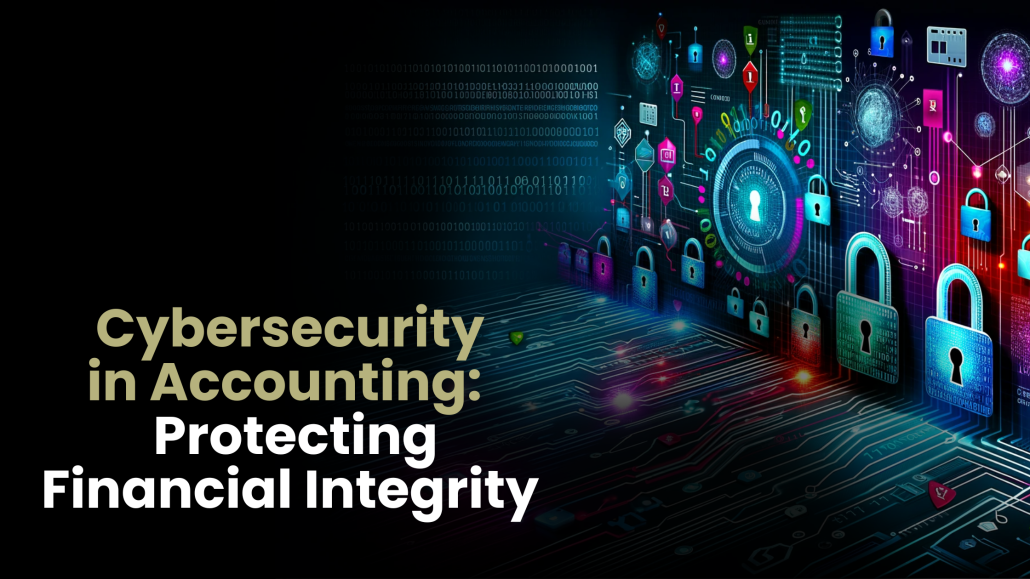
Cybersecurity in accounting is a paramount concern for businesses in the United States, where the digital landscape is rapidly evolving. As businesses increasingly rely on digital platforms for accounting and financial management, they face unique cybersecurity challenges. Understanding these challenges and implementing strategies to protect financial data is crucial.
The Importance of Cybersecurity in Accounting
In the U.S., businesses deal with a variety of sensitive information, including financial records and personal employee and customer details. A cybersecurity breach can lead to unauthorized access to this data, resulting in significant financial losses and damage to reputation.
The United States enforces strict data protection laws, such as the Sarbanes-Oxley Act for financial disclosures and the Health Insurance Portability and Accountability Act (HIPAA) for healthcare information. Failing to secure data in accordance with these regulations can result in serious legal and financial consequences.
Maintaining customers’ trust is crucial in a competitive market. A strong cybersecurity framework is essential to ensure the longevity of business relationships.
Strategies for Businesses to Protect Financial Data
Employee Education: Human error remains a significant risk factor. Training employees to recognize cyber threats like phishing and to practice secure data handling is essential.
Robust Cybersecurity Measures: Businesses should invest in comprehensive cybersecurity infrastructure, including firewalls, anti-malware software, data encryption, and secure networking solutions. Regular updates and maintenance are key to staying ahead of threats.
Regular Cybersecurity Audits: Conducting frequent audits helps businesses identify and address vulnerabilities, aligning with best practices and regulatory requirements.
Incident Response Planning: Developing a clear plan for responding to cyber incidents is crucial for businesses to minimize damage and recover swiftly.
Collaboration with Cybersecurity Specialists: Particularly for small and medium-sized businesses, partnering with IT firms specializing in cybersecurity can provide customized, expert solutions.
For businesses, effectively managing cybersecurity in accounting is not just a technical necessity but a critical component of business strategy. By adopting these strategies, businesses can safeguard their financial data against cyber threats, ensuring compliance with U.S. regulations, and maintaining customers’ trust.
The Importance of Cybersecurity in Accounting
In the U.S., businesses deal with a variety of sensitive information, including financial records and personal employee and customer details. A cybersecurity breach can lead to unauthorized access to this data, resulting in significant financial losses and damage to reputation.
The United States enforces strict data protection laws, such as the Sarbanes-Oxley Act for financial disclosures and the Health Insurance Portability and Accountability Act (HIPAA) for healthcare information. Failing to secure data in accordance with these regulations can result in serious legal and financial consequences.
Maintaining customers’ trust is crucial in a competitive market. A strong cybersecurity framework is essential to ensure the longevity of business relationships.
Strategies for Businesses to Protect Financial Data
Employee Education: Human error remains a significant risk factor. Training employees to recognize cyber threats like phishing and to practice secure data handling is essential.
Robust Cybersecurity Measures: Businesses should invest in comprehensive cybersecurity infrastructure, including firewalls, anti-malware software, data encryption, and secure networking solutions. Regular updates and maintenance are key to staying ahead of threats.
Regular Cybersecurity Audits: Conducting frequent audits helps businesses identify and address vulnerabilities, aligning with best practices and regulatory requirements.
Incident Response Planning: Developing a clear plan for responding to cyber incidents is crucial for businesses to minimize damage and recover swiftly.
Collaboration with Cybersecurity Specialists: Particularly for small and medium-sized businesses, partnering with IT firms specializing in cybersecurity can provide customized, expert solutions.
For businesses, effectively managing cybersecurity in accounting is not just a technical necessity but a critical component of business strategy. By adopting these strategies, businesses can safeguard their financial data against cyber threats, ensuring compliance with U.S. regulations, and maintaining customers’ trust.


